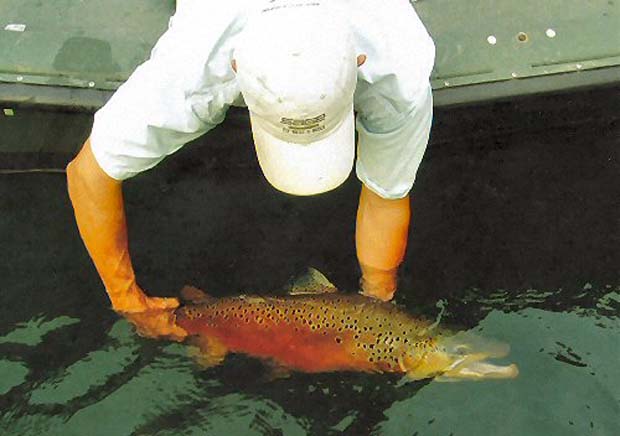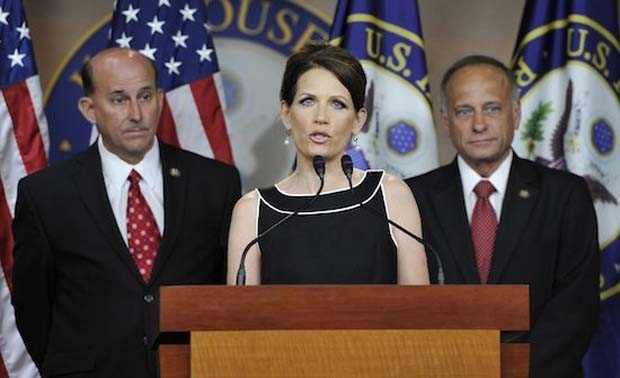Obama To Sign Law Protecting Dam Anglers in Midwest
May 23, 2013
[dropcap]O[/dropcap]n May 21, 2013, the United States Senate voted by unanimous consent to pass the federal Freedom To Fish Act Of 2013. The following day, the legislation was delivered to the President for his signature.
Before you go off and give a big Memorial Day toast amongst your angling partners this week, the Recreational Fishing Alliance (RFA) wants you to know that the new Freedom To Fish Act is not the same legislation you fought long and hard to support over the past 10 years. In fact, as far as saltwater angling goes, the new federal Freedom To Fish Act is mostly farce.
Trumpeted by some House and Senate republicans as a historic piece of legislation, the Freedom To Fish Act placed on President’s Obama’s desk this week does little more than provide a 2-year moratorium on the Army Corps of Engineer’s plan to erect barriers specifically along the Cumberland River in Kentucky and Tennessee.
“A total of 11 sponsors of a House and Senate bill, with all members from either Tennessee or Kentucky, yet this legislation just sails through with a smile and a wave,” said RFA executive director Jim Donofrio. “Bring 5,000 coastal fishermen to Washington DC in organized protest of our federal fisheries law and garner support of upwards of 50 federal legislators, and Congress does nothing, it’s maddening.”
Donofrio said the new legislation might offer some freedom to fish for dam anglers on the Cumberland River in Kentucky and Tennessee, but he added “had any of the original Freedom to Fish sponsors in DC actually read this bill they would’ve realized that their coastal anglers were essentially being pawned off by unanimous consent.”
To expedite congressional proceedings – typically at the end of a long day in session – the Senate may make allowances for a unanimous consent on the floor to set aside a specific rule of procedure. If no senator objects to it, legislation is essentially passed without an official roll call vote by its members. The reauthorization of the Magnuson-Stevens Act was passed in the U.S. Senate by unanimous consent in 2006, an action which RFA has criticized as being particularly disrespectful towards angling interests whose concerns over the rigidity of the law were suppressed by environmental lobbyists.
“The approval rating in Congress is in the low teens for good reason, our elected legislators aren’t reading these pieces of legislation, not the ones they support nor the ones they oppose,” Donofrio said.
RFA and other organizations spent several years trying to pass a federal Freedom to Fish Act which would’ve protected millions of coastal anglers from being subject to arbitrary and unscientifically backed closure of coastal waters through creation of marine reserves. Already passed in several coastal states, the Freedom to Fish Act was stalled at the federal level by environmental groups looking to create a network of zero public access marine reserves.
RFA said the original act would’ve provided far broader federal protection for anglers against arbitrary closed area regulations on every coast
“It was good legislation designed to sensibly protect our coastal fishing interests, but the environmental groups demonized the effort while some folks who should’ve been fighting for its passage were afraid to get their hands dirty,” Donofrio said. “It’s a shame too, I’m sure that particular federal law would’ve protected a whole lot of industry jobs had it passed 10 years ago when we had the momentum.”
RFA said the new legislation which is expected to be signed into law by President Obama in the coming days specifically defines “restricted areas” as only those waters “at dams and other civil works structures in the Cumberland River basin.”
“Hope our national tackle manufacturers are happy, their lobbyists just helped hand the most angler-unfriendly administration in history what will probably be turned into a huge public relations win, with a piece of legislation with very little public access benefit,” said Donofrio.
Unless, of course, you fish solely on the Cumberland River.
Donofrio said RFA continues its fight exclusively on behalf of its mission to safeguard the rights of saltwater anglers and protect boat, marine and tackle industry jobs, and he said the organization’s promise to protect their members’ freedom to fish will not be deterred, even though a handful of congressional members were apparently influenced into selling out the interests of millions of anglers in order to give the president a Memorial Day win.
“Radical environmental groups and apologists within the recreational community have been attacking the RFA and its members for national rallies in Washington DC and for standing up for anglers’ right to fish by supporting federal and state level Freedom to Fish legislative efforts, but they sure found a cute way to retire that legislative name without securing the intent of the original act, all while allowing the president to sign a new law that provides no additional freedoms to 99 percent of the nation’s anglers,” Donofrio said
“I’m sure there are a few thousand freshwater anglers in the Midwest who are happy about a 2-year moratorium on boat access near Kentucky and Tennessee dams, but for the millions of U.S. saltwater anglers under daily attack by showroom environmentalists, Beltway insiders, bureaucrats and a dysfunctional Congress, there are no freedoms granted by this particular legislation,” Donofrio added.
About Recreational Fishing Alliance
The Recreational Fishing Alliance is a national, grassroots political action organization representing recreational fishermen and the recreational fishing industry on marine fisheries issues. The RFA Mission is to safeguard the rights of saltwater anglers, protect marine, boat and tackle industry jobs, and ensure the long-term sustainability of our Nation’s saltwater fisheries. For more information, call 888-JOIN-RFA or visit www.joinrfa.org.








